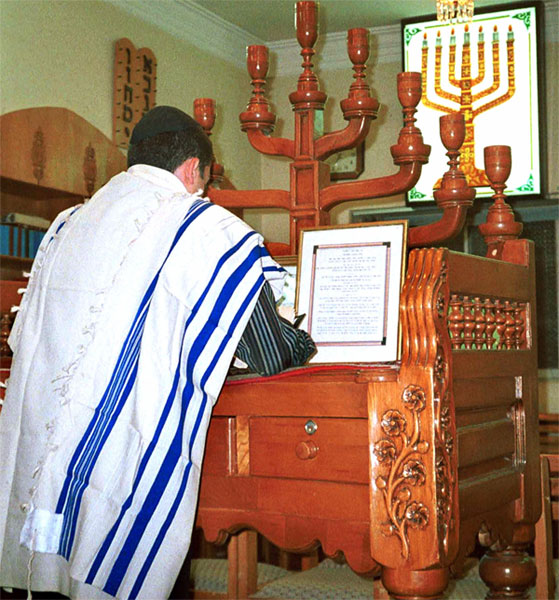
Jewish community under scrutiny as Tehran targets alleged ties to Israel
Twenty-four Iranian Jews are currently imprisoned in Tehran and Shiraz following a broad government crackdown that began in late June, according to sources familiar with the situation. The arrests, which have swept up more than 700 people nationwide, appear to be part of a search for alleged collaborators with Israel in the wake of escalating regional tensions.
According to HRANA, the Human Rights Activists News Agency, 35 Jews were initially detained on June 23. Eleven have since been released, but the remaining 24 — including several rabbis — are still being held. The detainees are reportedly being investigated for alleged contact with Israel.
A former senior leader of Iran’s Jewish community, now based in Los Angeles, told reporters that Iranian authorities are checking detainees' phones for any communication with Israel. “Most Iranian Jews have family there,” he explained. “During the recent military conflict, many reached out to check on their loved ones.”
Although contact with Israel has long been prohibited, it had been informally tolerated due to family ties. That leniency appears to have ended. “Now they can accuse anyone of being a spy,” the former leader said.
The crackdown follows Israel’s mid-June military strikes targeting Iran’s nuclear infrastructure, which Jerusalem claims are necessary to prevent Tehran from developing nuclear weapons. Iran denies these accusations but has vowed to retaliate, while maintaining it has no such weapons program.
In the days following the attacks, Iran intensified internal security operations. On June 13, three ethnic Kurds were executed for allegedly aiding Mossad in the 2020 assassination of nuclear scientist Mohsen Fakhrizadeh.
While Israel has demonstrated significant intelligence reach within Iran — including footage of agents preparing for airstrikes — there’s no public evidence of recruitment from within Iran’s Jewish community, which numbers around 10,000 today. That community once exceeded 80,000 before the 1979 Islamic Revolution.
Though officially recognized and allowed to maintain religious and community institutions, Iranian Jews — like other religious minorities — face legal and social discrimination under the country’s Islamic law. They cannot hold high-level government or military positions and are restricted in economic mobility. Still, a 1979 fatwa by Ayatollah Khomeini forbade physical harm against Jews, and they have one reserved seat in Iran’s parliament.
This is not the first time Iranian Jews have faced such allegations. In 1999, 13 Jews from Shiraz were arrested for allegedly spying for Israel. International pressure led to their eventual release by 2003.
Reflecting on that ordeal, the former community leader said, “It was a very bad time. We can only hope this doesn’t become another repeat.” Photo by US Department of state, Wikimedia commons.




































